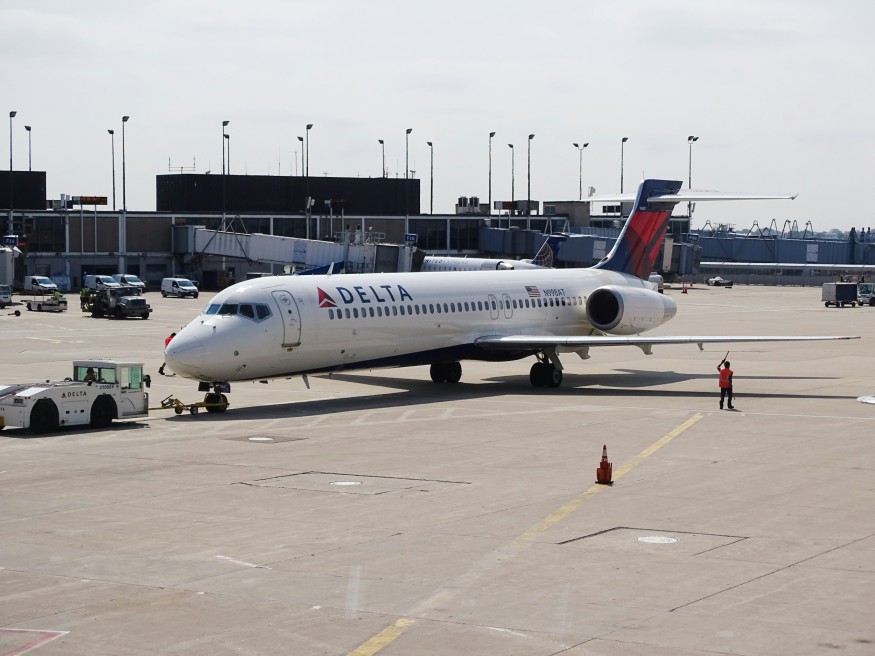
A veteran Delta Air Lines flight attendant accidentally activated an emergency evacuation slide on a parked Airbus A220 at Pittsburgh International Airport on Saturday evening. The incident resulted in approximately $70,000 in damages and temporarily trapped passengers onboard until engineers intervened.
According to Delta, the incident happened as the aircraft was preparing for departure to Atlanta. The crew was performing the standard procedure of arming the cabin doors before pushback. Moments later, the forward flight attendant mistakenly lifted the door handle while the system was still armed, triggering the automatic slide deployment mechanism.
The pressurised system immediately forced open the door and released the slide directly into the connected jetbridge, effectively blocking the exit. Passengers could not disembark until maintenance teams deflated and removed the slide. No injuries were reported, but the delay lasted over an hour while engineers reconnected the jetbridge and assessed the damage.
Costly Mishap on a Routine Flight
The flight attendant involved was reported to have more than 26 years of experience. Delta described the incident as a 'procedural error' and confirmed that the aircraft's emergency slide, a single-use safety device, will require replacement or factory re-packing.
Emergency slides for narrow-body aircraft such as the Airbus A220 typically cost between $50,000 and $70,000 to replace. Repacking by the manufacturer, which involves inspection and certification, can cost around $30,000.
A Delta spokesperson stated, 'We are cooperating with maintenance authorities and reviewing internal procedures. Safety is always our top priority. We are conducting a thorough investigation into the circumstances of this incident.'
Understanding 'Inadvertent Slide Deployments'
In aviation terminology, incidents like this are classified as Inadvertent Slide Deployments (ISDs). While relatively rare, Airbus data suggest that up to three such incidents occur globally each day. Most happen after landing, when doors are disarmed too late before opening for passengers.
Beyond the cost implications, the risks are significant. An unexpected slide deployment on the ground can cause serious injuries to airport personnel or damage nearby airport infrastructure, including jetbridges and service vehicles.
Industry analysts note that most such incidents are addressed through retraining rather than disciplinary action. These errors are often attributed to human factors, and they highlight potential areas for systemic procedural improvements.
Lessons in Human Factors and Safety Culture
Some airlines, including British Airways, have adopted the Japanese 'Shisa Kanko' or 'point and call' method. This approach involves crew members physically pointing to controls and verbally confirming actions before operating them, significantly reducing human error.
Studies suggest this technique can cut error rates by as much as 85%. While Delta has not confirmed whether procedural changes will follow this incident, such measures could potentially prevent similar mistakes in the future.
Passenger Impact and Aircraft Status
As operations resumed later that evening, passengers boarded another aircraft to complete their flight to Atlanta. The damaged A220 remained out of service for inspection and repair.
This incident underscores the importance of rigorous safety procedures and ongoing training in aviation. While the mistake was human, the potential consequences could have been far more severe, emphasising the need for continued focus on safety culture across the industry.
Originally published on IBTimes UK
This article is copyrighted by IBTimes.co.uk, the business news leader



